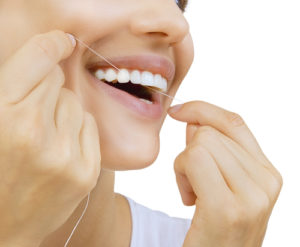The specialty area of dentistry known as pediatric dentistry is concerned with the oral health of newborns, kids, and teenagers, especially those with special needs. To provide the groundwork for a lifetime of proper oral hygiene, this area of dentistry is committed to making sure young patients receive the care they require to grow and maintain healthy mouths. Pediatric dentists have received specialized training to address the special requirements of kids and are adept at making dental visits enjoyable and stress-free.
Healthy dental habits must be formed at a young age because oral health is vital to general well-being. Children are advised to see a dentist for the first time by the time their first tooth erupts or by the time they turn one year old. Pediatric dentists can evaluate oral development, offer advice on good hygiene habits, and identify any possible problems before they become serious ones during early appointments. Additionally, by helping kids become used to the dental setting, these first visits lessen their anxiety during subsequent visits.
The foundation of pediatric dentistry is preventative care. Cavities and other dental problems are prevented by procedures including sealants, fluoride treatments, and routine cleanings. Dental sealants offer a protective layer on the chewing surfaces of molars, where cavities are most likely to develop, while fluoride fortifies enamel, increasing its resistance to decay. Pediatric dentists also teach parents and other caregivers the value of a healthy diet, how to brush and floss properly, and the consequences of bad habits like pacifier use and thumb-sucking.
Pediatric dentists are qualified to treat a range of dental issues in addition to prevention. Tooth-colored fillings that match in perfectly with natural teeth can be used to treat cavities, one of the most prevalent chronic illnesses in children. Pediatric crowns could be required to restore the tooth’s appearance and function in cases of more severe decay. To provide children with timely and efficient care, pediatric dentists are also qualified to handle dental emergencies, such as knocked-out teeth or oral traumas.
Another crucial component of childhood dentistry is orthodontic examinations. Potential alignment or biting difficulties can be detected early on, usually around age seven. Even while not every child needs orthodontic treatment right now, early detection enables prompt intervention if needed. By using space maintainers or interceptive orthodontics to address certain concerns, more complicated complications can be avoided down the road.
Pediatric dentistry’s psychological component is equally as crucial as its medical component. Making dentist visits enjoyable for kids is crucial because they frequently link them with anxiety or suffering. Pediatric dentist offices are made to be warm and inviting to children, and they frequently use bright décor, games, and entertainment to reduce fear. To make kids feel at ease and understood, dentists and staff explain treatments using language and methods that are appropriate for their age.
Sedation dentistry may be an option for kids with elevated anxiety or particular medical needs. Children can be made more comfortable and cooperative during treatments by using techniques like oral sedation or nitrous oxide (laughing gas). Based on the particular requirements of each kid and the intricacy of the operation, pediatric dentists are educated to choose the best sedation technique.
Pediatric dentists modify their treatment to fit each developmental stage as children’s dental needs alter as they become older. Pediatric dentists help families with every stage of their child’s oral health journey, from tracking the emergence of primary teeth and the transition to permanent teeth to treating teenage wisdom teeth issues. In addition to ensuring a consistent approach to preserving healthy smiles, this continuity of treatment builds trust.
Pediatric dentistry has an impact on more than just oral health. A child’s confidence and sense of self-worth are enhanced by a healthy grin, which also affects their social interactions and general quality of life. Pediatric dentists are essential in helping kids form the habits and mindsets required for long-term dental health by focusing on prevention, education, and early intervention.
In pediatric dentistry, parents and caregivers are crucial collaborators. To ensure success, parents must model proper oral hygiene habits, encourage frequent dental checkups, and create a nurturing environment for their kids to learn about dental care. Families may provide their kids with the resources they need for a lifetime of happy, healthy smiles by collaborating with pediatric dentists. If you need a dentist, you can visit the people at Lepore Comprehensive Dentistry.
Beyond simply taking care of teeth, pediatric dentistry aims to establish confidence, foster trust, and provide the foundation for long-term oral health. Pediatric dentists provide compassionate care that helps children grow up with healthy smiles and great attitudes toward dental care by concentrating on the special needs of young patients.
 Dentures are mouth replacements for teeth which are missing. Two types of dentures are available; complete and partial dentures. In the event that all teeth have gone missing, complete dentures are implemented, while the partial dentures are implemented when there are natural teeth which remain.
Dentures are mouth replacements for teeth which are missing. Two types of dentures are available; complete and partial dentures. In the event that all teeth have gone missing, complete dentures are implemented, while the partial dentures are implemented when there are natural teeth which remain. Dental health is important because it may also form a social misfit for one. This is because when the
Dental health is important because it may also form a social misfit for one. This is because when the